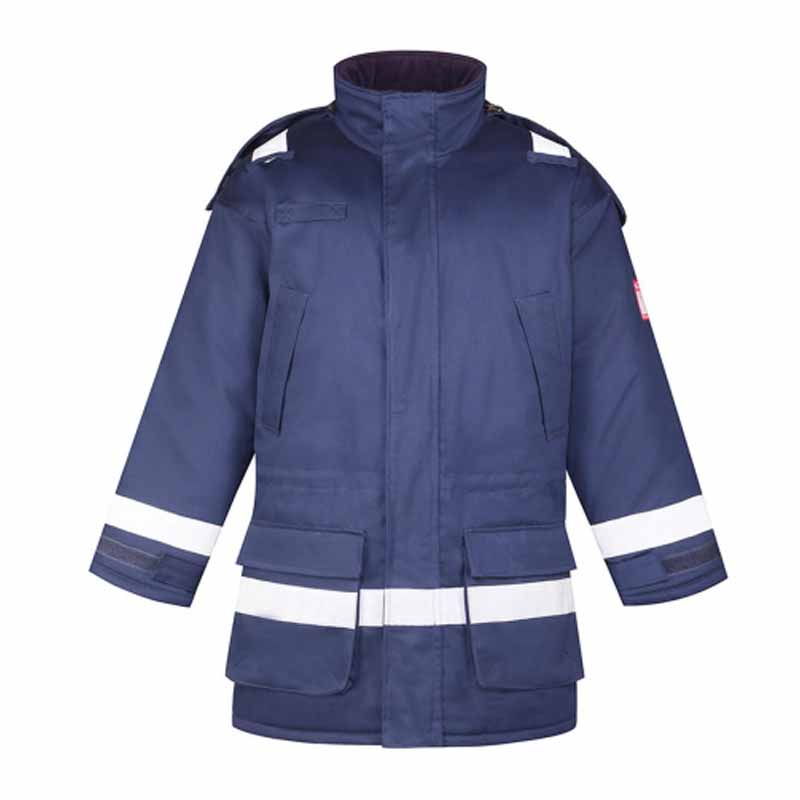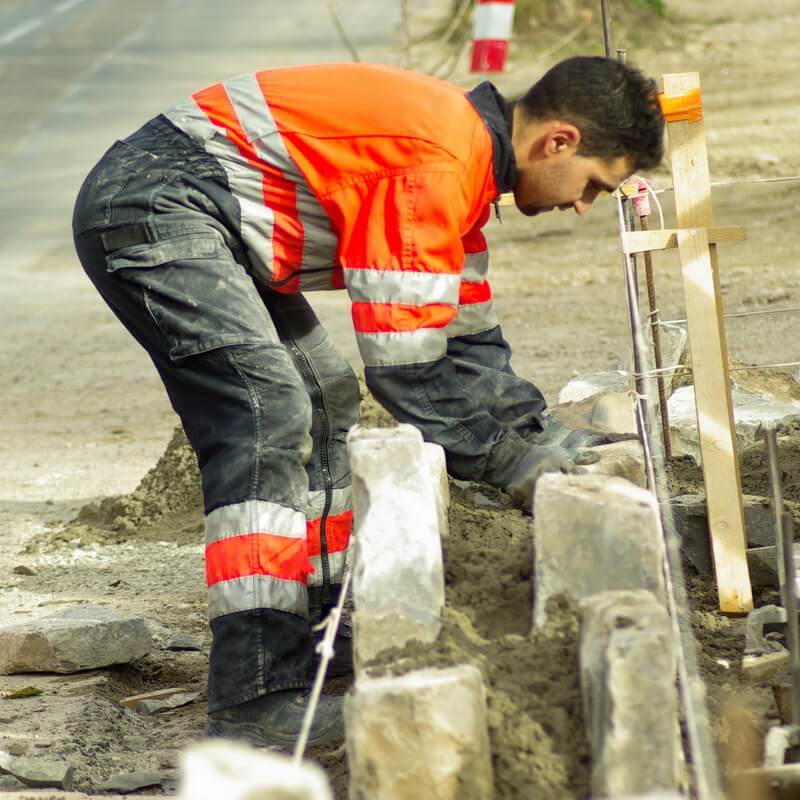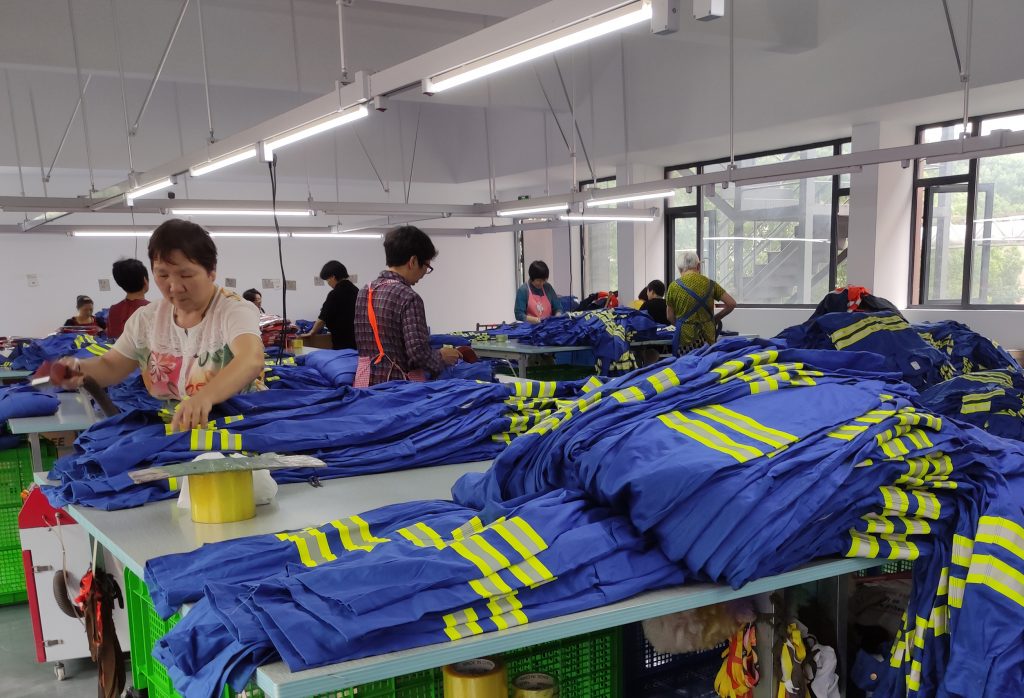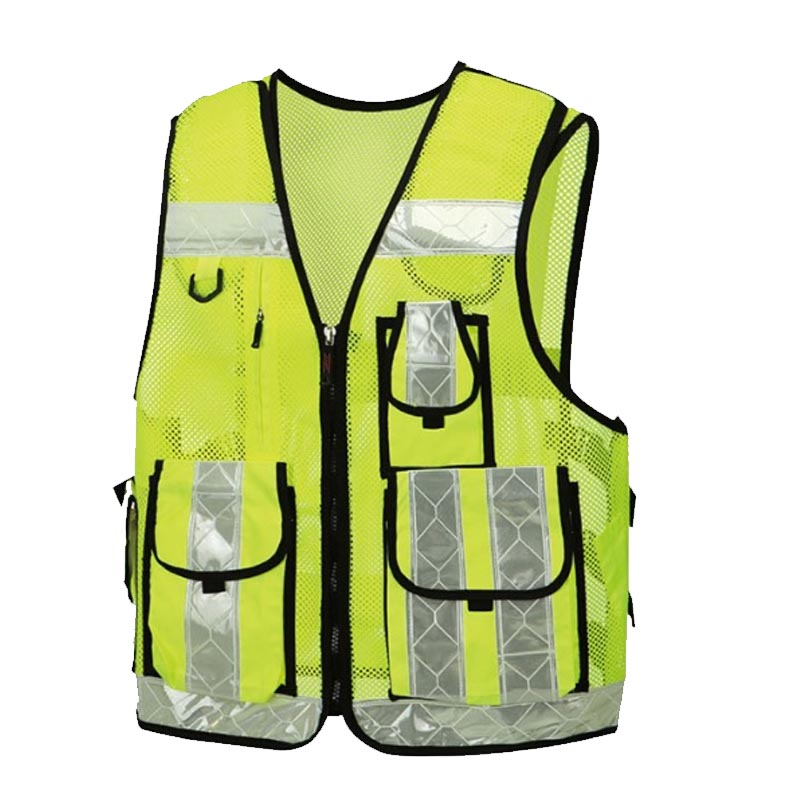Workwear is a critical component across a myriad of industries. From construction zones to corporate offices, workwear serves not only to ensure safety and comfort but also to project a unified and professional image. This is even more paramount within the B2B sector. As a brand, wholesaler, or importer, the responsibility is manifold as you cater not just to a single entity but to multiple businesses and, by extension, a vast number of employees. The role of workwear in B2B markets, therefore, is a topic that warrants our attention and understanding.
The workwear you provide to businesses has a direct and significant influence on your reputation and the satisfaction of your clients. Offering high-quality, durable workwear that meets the varied needs of different industries will not only enhance your reputation but will also earn you the appreciation of your clients. Conversely, any shortcomings in the safety, comfort, or durability of the workwear will reflect poorly on your business relationships.
How the Right Supplier Can Make All the Difference
Choosing the correct workwear supplier is a decision that permeates all aspects of your business. It’s not merely about finding a supplier who can offer you workwear at an attractive price. It’s about partnering with someone who understands your business needs and can collaborate with you to meet them.
A dependable supplier should be able to provide a broad range of high-quality products, deliver superior customer service, and possess reliable delivery and logistics capabilities. As we continue to explore the realm of workwear suppliers in the upcoming sections, we aim to equip you with the insights and guidance you need to make the best choice for your business. So, stay with us!
The Dynamics of the Workwear Market
Navigating the workwear market can be a complex task, given its extensive array and ever-evolving nature. To get a solid understanding of it, let’s first define what workwear is, explore the different types available, and understand the role it plays across various industries. This will provide a comprehensive backdrop to better appreciate the key players in the workwear market and the challenges they face.
Defining Workwear: What It Is and What It Isn’t

Workwear, as the name suggests, refers to the clothing worn for work, especially when the work involves manual labor or is in a hazardous environment. However, it’s not just any clothing worn to work. For instance, a suit worn to an office job can be considered work attire, but it’s not workwear. Workwear is designed to provide durability, safety, and functionality that the job requires, such as protective clothing in industries like construction, manufacturing, and healthcare.
The Different Types of Workwear
Workwear varies widely based on industry needs. This can range from high-visibility clothing for construction workers, flame-resistant coveralls for electricians, to scrubs for healthcare workers. Then there’s corporate workwear, like uniforms for retail employees, which helps to create a professional and cohesive brand image. Each type of workwear serves specific functions and is designed with the user’s safety, comfort, and the nature of the job in mind.
The Role of Workwear in Different Industries
Workwear plays a critical role in many industries. In physically demanding or hazardous jobs, it provides protection against injuries. In the healthcare sector, it helps to prevent the spread of infectious diseases. In the hospitality and retail sectors, it aids in creating a professional and uniform brand image. Thus, understanding the role of workwear in different industries is crucial in selecting the right products for your clients.
Key Players in the Workwear Market: Brands, Wholesalers, and Importers
In the workwear market, brands, wholesalers, and importers are the key players. Brands design and manufacture the workwear, wholesalers distribute these products to retailers or other businesses, and importers bring in workwear from foreign markets to meet local demands. Each player has a vital role and contributes to the overall functioning of the workwear market.
The Challenges Faced by Brands, Wholesalers, and Importers in the Workwear Industry
While the workwear market offers substantial opportunities, it also presents its share of challenges. These can include changing safety regulations, evolving industry needs, quality control, maintaining a diverse product range, and ensuring timely delivery. As a player in this market, understanding these challenges can help you to better strategize and navigate through them.
The Importance of High-Quality Workwear for Your Clients

When it comes to workwear, quality isn’t just a nice-to-have, it’s a must. As a key player in the workwear market, the products you provide to your clients can greatly impact their satisfaction, your business image, and most importantly, the safety and comfort of the end users. Let’s delve deeper into why high-quality workwear is so essential.
The Link Between Workwear Quality and Client Satisfaction
Quality is the backbone of client satisfaction in the workwear industry. Your clients trust you to provide workwear that not only meets their needs but also stands up to the demands of their industry. High-quality workwear is durable, functional, and comfortable – all aspects that directly contribute to the satisfaction of your clients. When their employees are well-protected and comfortable in their workwear, your clients will appreciate the thoughtfulness and care that you have put into providing the best products.
How Quality Workwear Reflects on Your Business Image
The quality of workwear you provide is a direct reflection of your business. If you consistently supply high-quality workwear, you’ll establish a reputation for reliability and professionalism. This not only attracts new clients but also nurtures trust and loyalty among your existing clients, leading to long-term business relationships. On the other hand, supplying subpar workwear can harm your reputation, with potential consequences for your client relationships and overall business success.
Safety and Comfort: Non-Negotiable Aspects of Workwear
While aesthetics and durability are important, safety and comfort are non-negotiable aspects of workwear. Depending on the industry, workwear often serves as the first line of defense against workplace hazards. Thus, it’s crucial to provide workwear that meets safety standards and regulations. Comfort, too, is key. Comfortable workwear contributes to better productivity and morale among workers. This is why it’s vital to choose a supplier who prioritizes safety and comfort in their workwear design and manufacturing process.
Key Considerations When Selecting a Workwear Supplier
Choosing a workwear supplier is a critical decision that can significantly impact your business. You’re not just choosing a supplier; you’re choosing a partner to help you meet your client’s needs and grow your business. Therefore, it’s essential to consider several key factors when selecting a supplier. Let’s delve into these considerations.
Supplier Experience and Reputation: Ensuring Reliability
When it comes to selecting a workwear supplier, their experience and reputation in the industry can’t be overlooked. An experienced supplier will have the necessary expertise to understand your needs and provide reliable solutions. A reputable supplier, with positive reviews and testimonials, will give you confidence in their ability to deliver quality products consistently.
Product Range and Quality: Catering to Diverse Client Needs
As the workwear needs of your clients can be varied, it’s crucial that your supplier offers a wide range of products to cater to these diverse requirements. Moreover, the quality of these products should be top-notch. High-quality workwear is durable, functional, and meets the safety and comfort needs of the end-users.
Customization Capabilities: Offering Unique Solutions to Your Clients
Different businesses have unique needs, and sometimes, off-the-shelf workwear might not meet these needs. Hence, it’s beneficial if your supplier has the capability to customize workwear according to your client’s specific requirements. This flexibility can help you provide unique solutions to your clients and stand out in the market.
The Supplier’s Commitment to Safety Standards
Workwear often serves as the first line of defense against workplace hazards. Therefore, it’s vital to choose a supplier who is committed to meeting and exceeding safety standards. They should be well-versed with the safety regulations of various industries and ensure their products comply with these rules.
Cost-Effectiveness: Balancing Quality and Price
While quality is paramount, cost-effectiveness is also an important factor. Your supplier should offer high-quality workwear at competitive prices. This doesn’t mean going for the cheapest option, but rather finding a supplier who offers the best value for money – a balance of quality and price.
Sustainability: Meeting the Growing Demand for Eco-friendly Products
Sustainability is no longer just a trend; it’s a necessity. Many businesses are now seeking eco-friendly workwear options as part of their commitment to reducing environmental impact. So, it’s advantageous if your supplier offers sustainable workwear options, helping you meet the growing demand for green products.
Evaluating Potential Workwear Suppliers: A Step-by-Step Guide

Once you have a clear understanding of the key considerations for selecting a workwear supplier, the next step is to evaluate potential suppliers. This process involves a thorough examination of the supplier’s certifications, customer reviews, customer support, and delivery and logistics capabilities. Let’s walk through this step-by-step guide to help you find the best workwear supplier for your business.
Verifying Supplier Certifications and Standards Compliance
It’s crucial to verify that your potential workwear supplier complies with industry standards and holds relevant certifications. These certifications ensure that the supplier adheres to quality management systems, safety standards, and ethical practices. Ask the supplier for their certification documents and ensure their products meet the safety regulations relevant to your clients’ industries.
Understanding the Importance of Customer Reviews and Testimonials
Customer reviews and testimonials can provide valuable insights into the quality of the supplier’s products and their business practices. Look for reviews on the supplier’s website, social media platforms, and other online review sites. Pay attention to comments about product quality, reliability, customer service, and delivery times. These can give you a realistic idea of what to expect from the supplier.
Evaluating Supplier’s Customer Support: A Key to Smooth Business Operations
Customer support is a crucial aspect of a smooth business relationship. A supplier with excellent customer support will be easy to communicate with, respond promptly to your queries and concerns, and be proactive in resolving any issues. You can evaluate a supplier’s customer support by noting how quickly and professionally they respond to your initial inquiries.
Assessing the Supplier’s Delivery and Logistics Capabilities
A supplier’s ability to deliver products on time and in good condition is fundamental to your business operations. Ask potential suppliers about their delivery times, shipping methods, and how they handle delays or damages during shipping. Also, find out if they can accommodate special delivery requirements when needed.
Future Trends in Workwear Supply and Their Impact on Your Business
In an ever-evolving industry like workwear, staying ahead of trends is crucial for your business’s success. By anticipating changes and adapting accordingly, you can continue to meet your client’s needs and stay competitive in the market. Let’s explore some upcoming trends in workwear supply and how they could impact your business.
Technological Innovations: The Rise of Smart Workwear
Technology continues to transform various industries, and workwear is no exception. We’re seeing the emergence of “smart” workwear equipped with technology to enhance safety and efficiency. For example, workwear with built-in sensors can monitor workers’ vital signs, alert them about potential hazards, or even track their location in case of an emergency. As a workwear supplier, keeping abreast of these technological innovations and incorporating them into your offerings could give you a competitive edge.
The Increasing Importance of Sustainable Workwear
As we’ve noted earlier, sustainability is a significant trend in the workwear industry. With increasing awareness about environmental issues, more businesses are seeking eco-friendly workwear options. This trend is likely to continue, with sustainable workwear becoming a standard requirement rather than a unique selling point. As a supplier, committing to sustainability can help you meet this demand and contribute positively to the environment.
Adapting to Changing Workforce Needs: A Challenge and an Opportunity
Workforce needs are continually changing, driven by factors like shifting demographics, evolving work practices, and new industry regulations. These changes can bring challenges, but they also offer opportunities for suppliers who are ready to adapt. For example, the rise of remote work and flexible working arrangements could lead to increased demand for comfortable, versatile workwear that can transition seamlessly between different environments.
By staying informed about these trends and preparing for them, you can ensure your business remains relevant and successful in the changing workwear market.
Why Choose Lino Safety as Your Reliable Workwear Supplier?
Lino Safety stands out as a reliable workwear supplier for several key reasons. Here, we’ll delve into what makes Lino Safety your ideal partner for high-quality workwear solutions.
- Experience and Reputation: With years of industry experience, Lino Safety has honed its expertise in providing workwear solutions for diverse industries. Our reputation for reliability and professionalism has been built on consistent delivery of quality products, and our commitment to our clients’ satisfaction.
- Wide Product Range and High Quality: Lino Safety offers an extensive range of workwear products, catering to the diverse needs of our clients. We never compromise on quality. Our workwear is designed to be durable, functional, and comfortable, meeting the high expectations of our clients and their end-users.
- Customization Capabilities: We understand that each business has unique needs. This is why we offer customization options for our workwear, allowing our clients to provide tailor-made solutions for their employees.
- Safety Standards Compliance: At Lino Safety, safety is paramount. Our workwear complies with the necessary safety regulations and standards, ensuring your employees are well-protected in their work environments.
- Cost-Effective Solutions: We believe in offering the best value for money. Lino Safety provides high-quality workwear at competitive prices, balancing cost and quality effectively.
- Sustainability Commitment: We are dedicated to promoting sustainability in the workwear market. Lino Safety offers a range of eco-friendly workwear options, helping businesses reduce their environmental impact.
By choosing Lino Safety as your workwear supplier, you’re not just choosing a supplier – you’re choosing a partner dedicated to meeting your workwear needs and contributing to your business success.
Frequently Asked Questions Tailored to Brands, Wholesalers, and Importers
How can I ensure a workwear supplier is reliable?
Ensuring the reliability of a workwear supplier involves checking their industry experience, certifications, product quality, customer reviews, and customer support. A reliable supplier will have a good track record, comply with safety and quality standards, offer high-quality products, and provide excellent customer service.
How to choose a workwear supplier that caters to my client’s needs?
To choose a supplier that caters to your client’s needs, you need to understand what those needs are. Consider aspects such as the types of workwear they require, their quality expectations, any customization needs, their budget, and their sustainability preferences. Then, look for a supplier who can meet these requirements.
What should I avoid when selecting a workwear supplier?
Avoid suppliers who lack transparency about their products or business practices, do not comply with safety and quality standards, have consistently negative customer reviews, or offer poor customer service. Also, avoid choosing a supplier based solely on price; quality and reliability should be your primary considerations.
How can I assess the quality of a supplier’s workwear?
You can assess the quality of a supplier’s workwear by checking the materials used, the durability and comfort of the products, and the supplier’s quality control procedures. You can also look at customer reviews for feedback on product quality.
What makes a good workwear supplier?
A good workwear supplier offers high-quality, durable, and comfortable products that meet safety standards. They provide a wide range of products to cater to diverse client needs and offer customization options. They are reliable, have good customer support, and deliver products on time. They also uphold ethical and sustainable practices.
How do I choose a workwear supplier for my business?
Choosing a workwear supplier for your business involves understanding your business’s workwear needs, identifying potential suppliers who can meet those needs, and then evaluating those suppliers based on factors like product quality, reliability, customer service, and price.
Are there industry-specific workwear suppliers?
Yes, some workwear suppliers specialize in specific industries like construction, healthcare, hospitality, or manufacturing. These suppliers may offer products that are specifically designed to meet the safety regulations and work conditions of those industries.
What role does sustainability play in choosing a supplier?
Sustainability plays an increasingly important role in choosing a supplier. Many businesses are looking to reduce their environmental impact and are therefore seeking suppliers who offer eco-friendly workwear options. A supplier’s commitment to sustainability can also be a reflection of their overall business ethics and responsibility.




